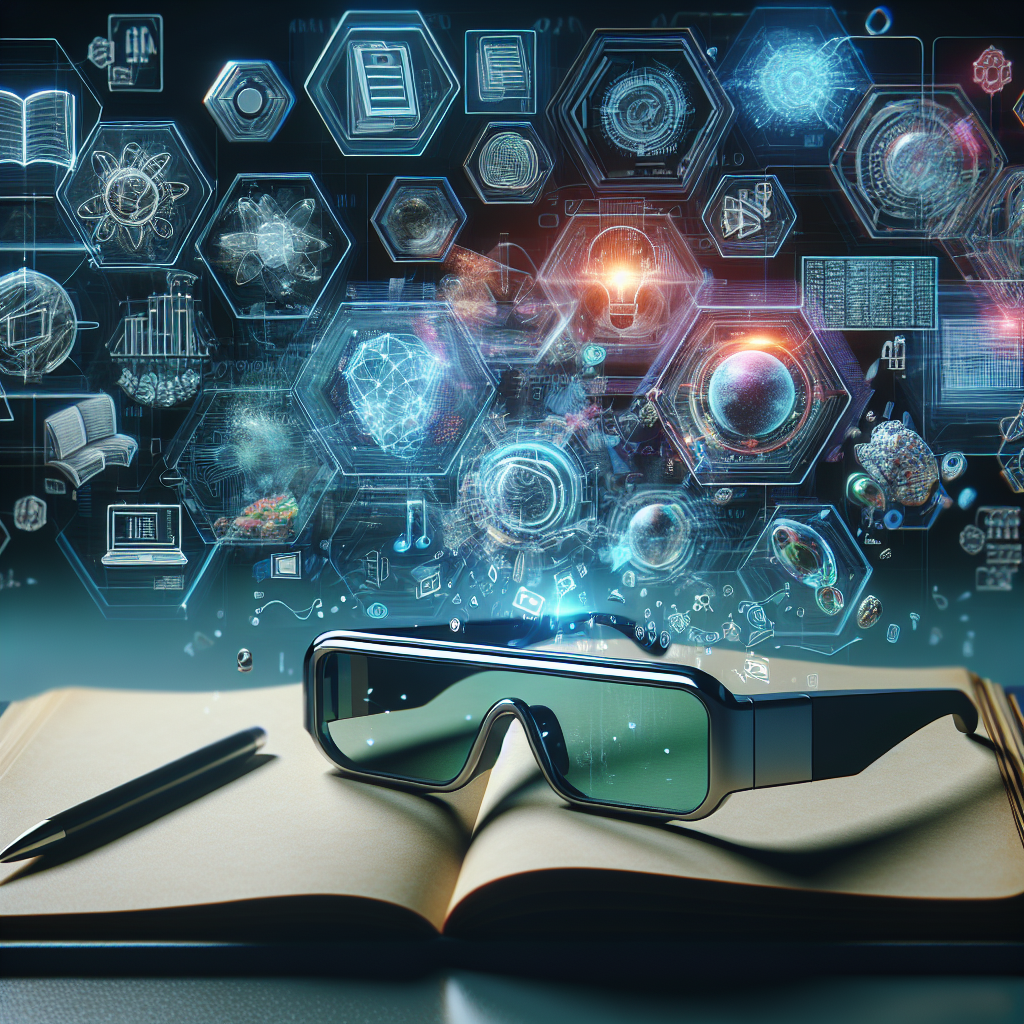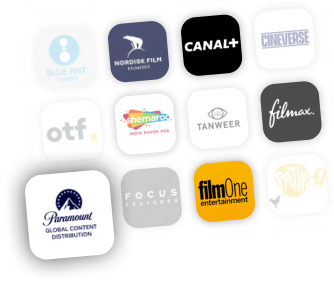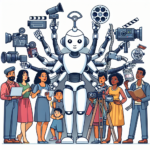Curious how Vitrina can help you? Try it out today!
Trusted by global entertainment leaders to grow business, acquire high-demand content, promote projects and services, and track every Film + TV production worldwide
Introduction:
Imagine a world where entertainment experiences are not just limited to what you see on a screen, but actually come to life around you. Augmented Reality (AR) is making this a reality, and with the help of Artificial Intelligence (AI), the possibilities are endless. For professionals in the entertainment industry, this means a whole new way of engaging audiences and creating immersive experiences that were once thought impossible. In this article, we will explore how AI is shaping the future of AR and what it means for key decision-makers in media and entertainment.
The Intersection of AI and AR: Revolutionizing Content Creation
In today’s fast-paced digital landscape, content creation is more competitive than ever. With the rise of AI-powered tools, content creators have access to a wealth of data and insights that can help them tailor their content to specific audiences. When combined with AR technology, this data can be used to create personalized and interactive experiences that engage viewers on a whole new level.
For example, Netflix‘s interactive movie “Bandersnatch” used AI algorithms to track viewer choices and adapt the storyline in real-time. This level of personalization not only increases viewer engagement but also provides valuable insights for content creators to optimize future projects.
Reimagine Possibilities with AI at Your Fingertips!

Enhancing Production and Post-Production Processes with AI
AI is also revolutionizing the production and post-production processes in the entertainment industry. From streamlining workflows to enhancing visual effects, AI-powered tools are making it easier than ever to create high-quality content in less time.
For example, Disney’s “The Lion King” used AI to create hyper-realistic animations of animals, bringing them to life in a way that was previously impossible. This level of detail and realism would have been extremely time-consuming and costly without AI technology.
Localizing Content for Global Audiences with AI
Localization is key for reaching global audiences, but it can be a complex and time-consuming process. AI is changing the game by automating many aspects of the localization process, from translating dialogue to adapting cultural references.
For example, AI-powered tools like IBM Watson can analyze text and audio data to create accurate translations in multiple languages, ensuring that content resonates with audiences around the world. This not only saves time and resources but also improves the overall viewing experience for international audiences.
Achieve More with AI-Enhanced Capabilities!

Leveraging AI for Content Financing and Investment
AI is also transforming the way content is financed and invested in the entertainment industry. By analyzing data on viewer preferences and trends, AI can help decision-makers make more informed decisions about which projects to fund and how to optimize their return on investment.
For example, streaming platforms like Hulu use AI algorithms to analyze viewer behavior and preferences, helping them determine which types of content to invest in and how to market it effectively. This data-driven approach not only reduces risk but also increases the likelihood of success in a highly competitive market.
Key Takeaways:
– AI is revolutionizing the entertainment industry by enhancing content creation, production processes, localization efforts, and financing decisions.
– The combination of AI and AR technology is creating immersive and personalized experiences that engage audiences on a whole new level.
– Professionals in media and entertainment must embrace AI technology to stay competitive and meet the evolving needs of audiences.
– Real-world examples like Netflix’s “Bandersnatch” and Disney’s “The Lion King” demonstrate the power of AI in creating compelling and innovative content.
FAQs:
Q1: How can AI help with content localization?
A: AI-powered tools can automate the translation and adaptation of content for different languages and cultures, ensuring that it resonates with global audiences.
Q2: What are some examples of AI-powered tools used in content creation?
A: Tools like IBM Watson and Netflix’s recommendation algorithms are just a few examples of how AI is being used to enhance content creation and distribution.
Q3: How can AI help with content financing decisions?
A: By analyzing data on viewer behavior and trends, AI can help decision-makers make more informed decisions about which projects to fund and how to maximize their return on investment.




























